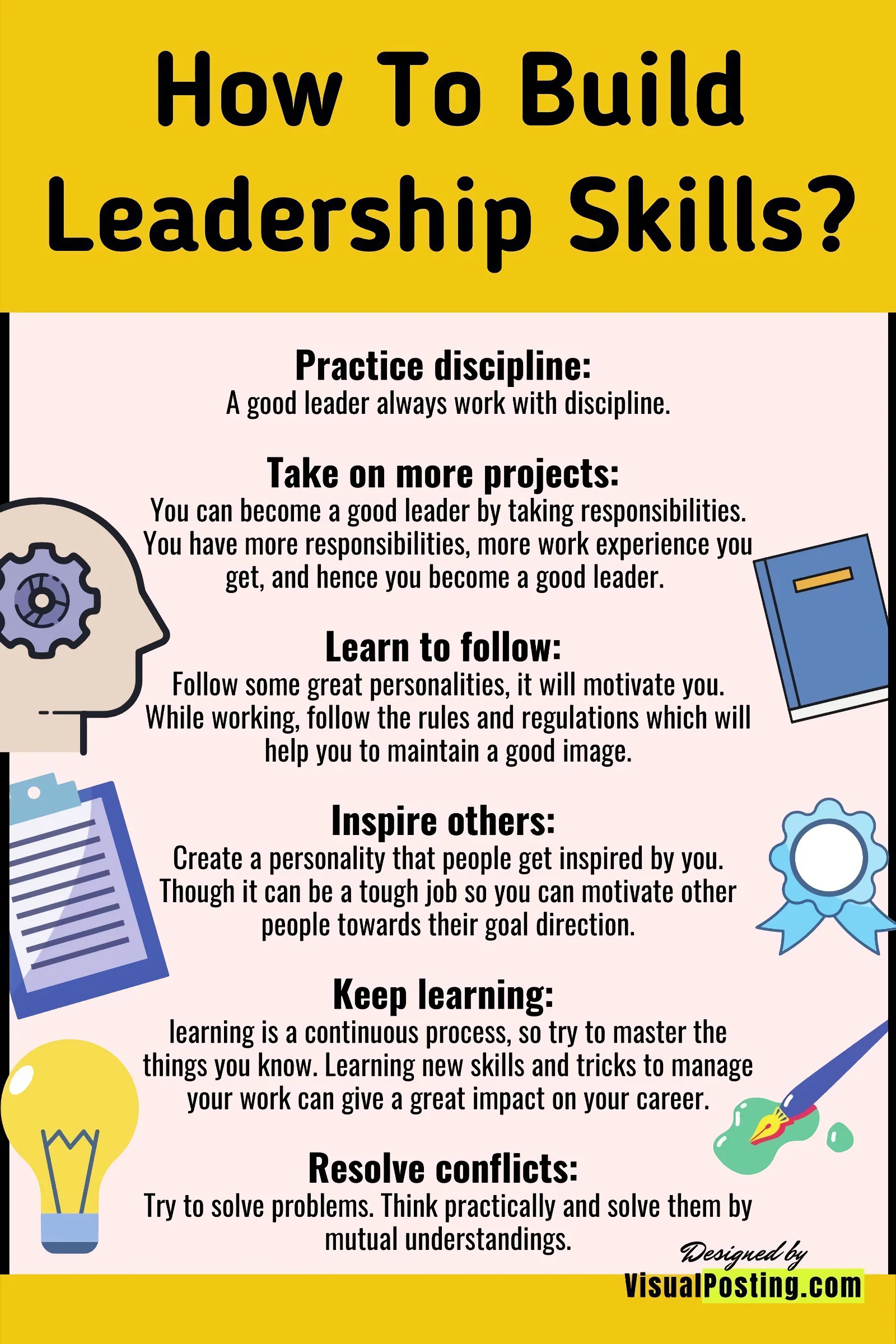How to Develop Leadership Skills
Leadership skills are important because they allow individuals to effectively guide and direct groups of people towards a common goal. They are essential for managers and executives, but can also be beneficial for employees who wish to take on more responsibility within their company. Leadership skills can be learned and enhanced through various methods, including training programs, self-study, and experience.
There are certain qualities that great leaders possess which allow them to be successful. Some of these include:
- Integrity: A great leader is honest and trustworthy, and followers can rely on them to do the right thing.
- Vision: A leader must be able to see beyond the present and have a clear idea of where they want to take their team or organization.
- Communication: A leader must be able to effectively communicate their vision and goals to subordinates, and also listen to their feedback.
- Decisiveness: Leaders need to be able to make decisions quickly and confidently in order to keep things moving forward.
- Passion: A great leader is passionate about their work and inspires others to share their enthusiasm.
And now… how you can build your leadership skills?
A good leader always works with discipline, because it allows them to be more effective and efficient. Leaders who are organized and have a plan can accomplish more than those who do not. In order to develop leadership skills, it is important to be disciplined in your own personal life. This includes being organized, setting goals, and sticking to a routine.
How you can be disciplined in your own life? This includes being organized, setting goals, and sticking to a routine. Leaders who can stay organized and focused can accomplish more than those who are not. By creating a routine for yourself and sticking to it, you will be able to develop the discipline needed to become a successful leader.
Keep learning. Self-study is another great way to develop leadership skills. There are many books and articles available on the topic, and studying the leadership styles of successful people can be very helpful. In addition, there are often leadership courses offered by business schools and organizations. Attending one of these courses can allow you to learn from professionals and gain valuable experience.
Experience is another important way to develop leadership skills. The best way to learn is by doing, so try to get as much experience leading others as possible. This can be done through volunteer work, work projects, or leadership roles in organizations or clubs. As you gain more experience, you will start to develop your own leadership style.
Great leaders take on more projects because they want to get things done and they know that experience is the best way to learn. They are also passionate about their work and want to inspire others to share their enthusiasm. Additionally, great leaders are always looking for ways to improve their skills and competencies, and taking on more projects is one way to do that.
Excellent leaders follow inspiring people because they want to learn from them and become better leaders. They also admire these individuals for their qualities and what they have accomplished. By following the examples of great leaders, you can develop leadership skills that will allow you to be successful in your own career.
A leader knows and understands key principles of how to motivate the team because they have been successful in motivating themselves. Leaders must be passionate about their work in order to motivate others, and they must also be able to communicate their vision and goals effectively. In addition, leaders should always be looking for ways to improve their skills and competencies, so that they can be more effective in motivating the team.
Great leaders resolve conflicts and solve problems because they can see things from different perspectives. They are also good at communicating and listening to others, which allows them to find solutions that everyone can agree on. Additionally, great leaders are always looking for ways to improve their skills and competencies, so that they can be more effective in resolving conflicts and solving problems.
